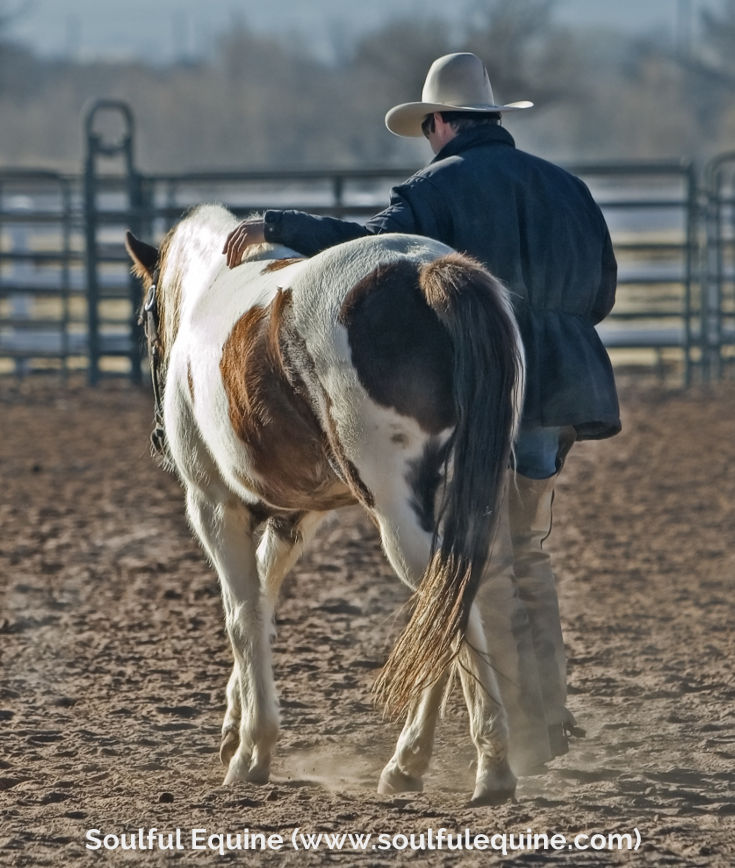
Did you know that horses learn much faster than we do? To some, that may sound strange, but I have no doubt this is true. They also learn exactly what we teach them to do, and quickly.
Most people don’t realize that anytime they’re around their horse, they’re teaching them something. Therefore, if you consistently create positive habits and patterns, what your horse learns from you will produce a positive outcome. The same holds true for destructive or inferior learning patterns.
It’s a powerful concept, especially where horse behavior is concerned.
This is why most people tend to blame the horse when she develops a habit that is less than ideal or is downright unacceptable. The reason? They have poor habits themselves, they’re not consistent and, therefore, their horse develops inappropriate behaviors.
It’s much easier to blame the horse rather than learn new skills.
How many times have you heard someone say, “My horse bolts when I take the halter off” or “They run away when I enter their pen or pasture”? Another common one is dominate behavior at feeding time. This is not only dangerous for you, but also for the other horses in your herd.
These inferior and destructive behaviors are not only about your relationship with your horse but are also about what you’ve unintentionally taught her to do.
When I hear somebody talk about a horse or a cow being stupid, I figure it’s a sure sign that animal has outfoxed them.” ~ Tom Dorrance
Horses are fast learners! We just have to step up to the plate and work on ourselves before we’ll see improvement to an undesirable situation.
You’ve probably heard the saying “your horse is your mirror.” There’s a lot of truth to that.
I believe horses teach us so much about ourselves and they reflect back to us how effective or ineffective we are at communicating. Horses are clear with their intent, if we just listen, and they never lie to us.
People are different.
I personally feel horses are much easier to read than people. I’m working hard to master both in this lifetime, but the people side of the equation is much more difficult.
The powerful concept I describe above about how fast your horse learns can help you break through a few barriers when you want to learn something new. I believe there are several similarities between how horses learn and how people learn.
Before I dive into my observations, I’d like to first introduce you to a learning model that you may or may not have heard about. I believe that by understanding and accepting the stages of this model, you’ll be able to more effectively accelerate your learning in any subject you choose.
Why Do I Believe This Is Important?
Anyone who has horses has the responsibility of becoming knowledgeable enough to make informed decisions about their horse’s care without being blindly swayed.
That’s a pretty tall order, isn’t it?
I understand. Sometimes the thought of learning something new strikes fear into people. As human beings, we don’t cope with change very well. Anytime you learn something new you’re inviting change into your life.
It’s inevitable.
A change in your beliefs and thoughts will change your life in some way. The fact that change is a constant is just that – a fact.
So how can we break through the fear of learning something new? By understanding and accepting that everyone goes through four stages of learning.
This will not only help you decide on what to learn, but may give you the peace of mind that most people need to start something new and exciting.
How Human Beings Learn – The Learning Model
Anytime you start something new you will go through four stages of learning. A model called The Conscious Competence Learning Model defines how we learn as human beings. As you read through it, think back on the most recent new thing you learned and try to identify the different stages.
The four stages:
- Unconscious Incompetence – Another word for this can be blissful ignorance. This is were you really don’t know what you don’t know. At this stage of learning you don’t have experience with what you want to learn. Once you have experience of trying that new thing, you move on to the second stage.
- Conscious Incompetence – This is the stage where you’re painfully aware of what you’re learning. It may feel very uncomfortable, but you’re able to move through it with practice, feedback, resources, etc. but mainly practice. From there you move to the third stage of learning.
- Conscious Competence – At this stage you’re able to do something or completely understand it, but you’re still thinking about what you’re doing. You’re aware that you’re in this stage of “this is what I need to do, step 1, step 2 …” From there, and with lots of practice, you eventually move on to the next stage.
- Unconscious Competence – This stage is usually the zone you see people in when it appears that they do something effortlessly. The task they’re performing might look smooth and elegant. To the naked eye it may look easy. This can be a combination of natural strength and talent, but in addition to that they have taken the time to gain the competence and experience in order to take it to a higher level.
An example of unconscious competence is a master horseman who can cause a difficult horse to seem easy to handle in a short period of time, or a competent natural hoof care professional who effortlessly flows around a horse and trims her hooves.
Both skills may appear easy to those watching, but in reality, both take a high level of skill and knowledge that wasn’t obtained overnight.
Before Learning Something New, Ask Yourself this Question …
Now that you know the different stages of learning, you may want to ask yourself this question before making a commitment to acquiring a new skill.
Is it worth it to me?”
If you want to obtain a certain skill set or level of knowledge in a certain subject, it will be important to go through the different stages of learning. This will help make it much easier to learn anything new, especially when it comes to horses. The reason … because horses bring in a whole different factor to the equation that can make learning more difficult. You’re dealing with a living, breathing being. They will almost always let you know if you’re on the right track, that is, if you’re listening.
It’s a good thing (for us) that horses are so forgiving of our inadequacies.
Learning to listen to your horse is another skill to master. If you’re working on the listening side of the equation, then understand that even that requires the four stages of learning.
You can apply it to anything new you learn.
Most People Want to Jump to the Fancy Stuff First
It’s human nature to see a skill performed that you’re interested in, and to watch someone who is unconsciously competent at performing that skill, and long to be able to do that yourself. Most people want it now and they think “How hard can it be, right?” They think, “That must be easy” – until they try it.
Then they start to realize there’s more to it. At that point, many people either force their horse to do something they’re not ready for or they force themselves to attempt to do a high level task with almost zero preparation.
This is a common scenario – especially in the horse industry.
Usually they will get frustrated and give up. Why? Because they set themselves and / or their horse up for failure by not understanding the four stages of learning and by not instilling solid fundamentals.
So What’s The Lesson?
Set yourself, and your horse, up for success rather than failure through preparation and focusing first on the core fundamental concepts in any of your endeavors.
As continuous learners, we all encounter struggles. What’s your most recent learning experience where you can identify any of the stages of learning mentioned in this article?
I hope this has been of some value to you as you continue on your path to learning anything new with horses!
Keep it soulful,
Stephanie Krahl
Assignment
Go watch The Karate Kid (The Original) and The Karate Kid (2010 film). Both movies are excellent examples of this learning model.
Nobody Tells This to Beginners
This is a short but powerful video. We’re all beginners at something and it helps to remember these words of wisdom.
